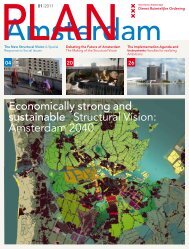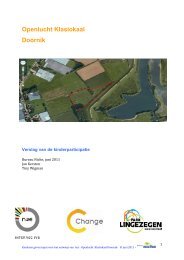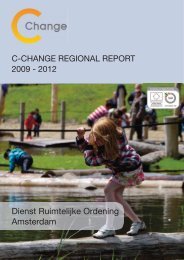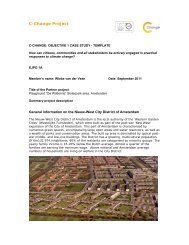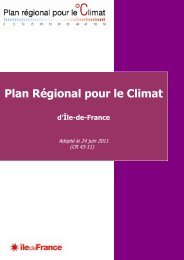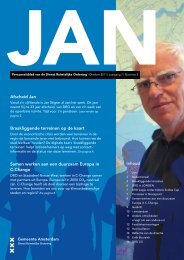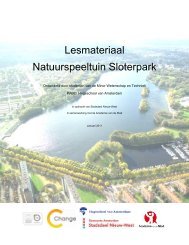Saarland Regional Report - C-Change
Saarland Regional Report - C-Change
Saarland Regional Report - C-Change
Create successful ePaper yourself
Turn your PDF publications into a flip-book with our unique Google optimized e-Paper software.
3. Objectives Addressed<br />
The main questions addresed were:<br />
• How can regions and cities adapt to the<br />
consequences of climate change<br />
• What role do open spaces play when it comes to<br />
adaptation<br />
• What can be done in the urban and regional planning<br />
to further mitigation and adaptation measures<br />
• How can we interlink the different planning levels in<br />
order to coordinate adaptation and mitigation strategies<br />
• Is it necessary to readjust existing planning tools and<br />
processes<br />
• How can local stakeholders be actively involved into<br />
current planning processes as well as in the actual<br />
implementation of measures<br />
4. Results and Conclusions<br />
In the <strong>Saarland</strong>, C-<strong>Change</strong> involves the pursuit of<br />
integrated spatial planning approaches designed to<br />
incorporate the cross-sectional theme of climate change<br />
in various levels of spatial planning – from the state<br />
planning via the activities in the regional planning<br />
association of Saarbrücken and inter-municipal action<br />
programmes through to the planning of urban open<br />
spaces – and network them intensively. Climate change<br />
is hence not, as is so often the case, processed<br />
independently of current planning processes, but instead<br />
embedded in them. Only this way can possible target<br />
conflicts between, for example, the expansion of<br />
regenerative energy and climate adaptation measures,<br />
or also between the concepts of compact vs. climateadapted<br />
city.<br />
The C-<strong>Change</strong> project in Saarbrücken but also the<br />
results at state level furthermore demonstrate the central<br />
importance of open spaces for climate change-proof<br />
urban development, and elaborate concrete proposals<br />
for securing and/or upgrading climate-relevant open<br />
spaces. The results of Saarbrücken within the framework<br />
of the ExWoSt research programme are systematised<br />
and can also be applied in other cities.<br />
The C-<strong>Change</strong> projects additionally show which basic<br />
data are meaningful and required for urban strategies<br />
addressing climate change and how necessary it is to<br />
integrate new approaches such as vulnerability analyses<br />
into spatial planning procedures. The readjustment of<br />
existing planning tools and processes is necessary. That<br />
means existing spatial planning procedures need to be<br />
adjusted correspondingly to the challenges related to<br />
climate change. The answers for the design of the<br />
planning tools are meant to provide models for an<br />
effective approach to the subject of climate change,<br />
whilst bridging the gap to the actual implementation<br />
of measures.<br />
The dialogue at local level proved how important<br />
communication and participation strategies are as the<br />
necessity of adaptation is hardly perceived by most local<br />
actors – in contrast to the importance of climate<br />
protection and the development of renewable energies.<br />
Within the context of the city of Saarbrücken’s open<br />
space project, broad citizens‘ involvement – regarding<br />
„heavy rains“ in the sense of a risk governance<br />
approach, and regarding thermal stress as a broadly<br />
designed discussion process – showed how important<br />
tailor-made concepts of participation processes are.<br />
5<br />
<strong>Regional</strong> Park Forum 2012 on Climate <strong>Change</strong><br />
(source: Dirk Michler)





